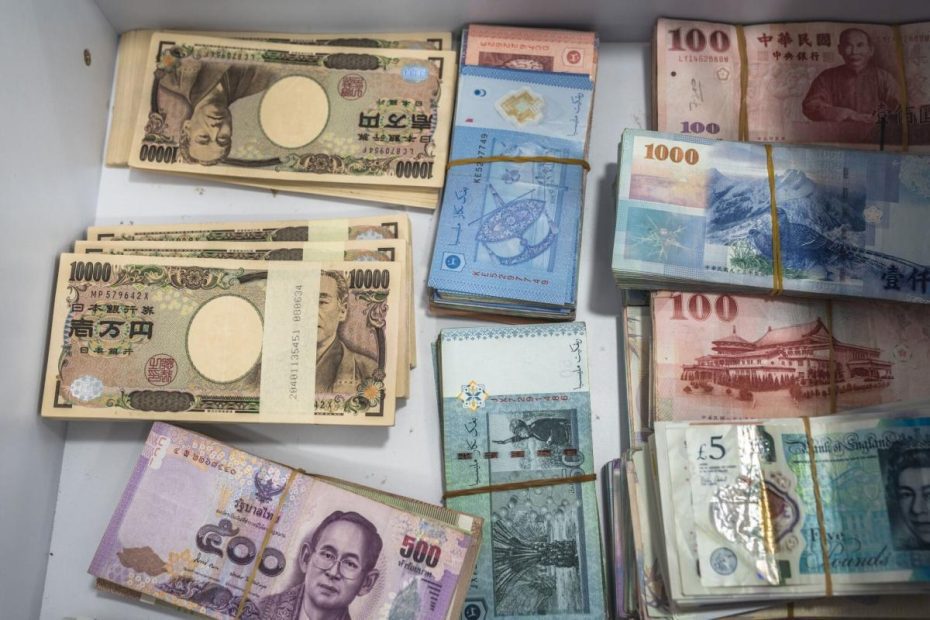(Bloomberg) — Markets are likely to remain under pressure as traders reassess their positions after President-elect Donald Trump announced he would impose trade tariffs on Mexico and Canada, and raise tariffs on China.
Most read from Bloomberg
Asian currencies such as the Korean won and Thai baht, seen as indicators of Chinese sentiment, are likely to underperform, market participants said. Chinese, Mexican and Canadian stocks will also fall, especially those with large exports to the U.S., they said.
Here's what analysts and strategists in Asia had to say:
Andrew Ticehurst, senior rates strategist at Nomura in Sydney:
“Tariff talk heightens global inflation fears, creates concerns about global growth and increases geopolitical uncertainty. The knee-jerk reaction in the markets is a stronger US dollar, higher rates and weaker stocks.”
“It is curious that Trump seems to be putting Canada and Mexico at the top of his list of trade targets, especially considering that there is a trade agreement between the three countries (USMCA). Our U.S. team notes that Trump could use emergency powers to push tariffs on Canadian and Mexican goods, but we believe there would be a significant potential for a lawsuit if Trump were to proceed.”
Solid dollar
Carol Kong, currency strategist at Commonwealth Bank of Australia in Sydney:
Markets are on alert for more tariff news and “this uncertainty over US trade policy will keep markets heavy, so expect the AUD and others to at least maintain their declines,” she said. “Trump's threat of more tariffs will give new impetus to the US dollar. Aussie and Kiwi will be dragged down because of their ties to the Chinese economy.”
Mahjabeen Zaman, head of FX research at ANZ Banking Group in Sydney:
We “will likely see the dollar remain firm for now as markets absorb this news in the short term. However, we cannot completely discount the seasonality for the US dollar at the end of the year, as there could be a marginal weakening of the dollar rally. But the general bias remains positive on the dollar, although I would say there is already a lot in the price now.”
Asian currency underperforms
Kiyong Seong, a macro strategist at Societe Generale in Hong Kong:
“Even the US government will phase rates with rate and coverage, the market tends to bring forward the future rate change in our view. We still believe the impact on emerging market currencies will be different depending on the individual rate level, and expect the yuan to underperform across the emerging market currency universe in Asia.”
Alex Loo, macro strategist at Toronto-Dominion Bank in Singapore:
The first effect of Trump's announcement is “that the US dollar is bullish, reflecting the impact of global trade tensions and related tariff increases. Given the prospects for a disruption to the status quo, we can expect currencies in Asia to underperform, especially the Korean won, Taiwan dollar and Singapore dollar, given the trade-oriented nature of their economies.”
Mitul Kotecha, head of Asia FX & EM macro strategy at Barclays in Singapore:
“Emerging market and Asian currencies, especially trade-linked currencies, took a hit from President-elect Trump's tariff comments this morning and may be trading subdued in the near term. It will clearly increase pressure on the yuan and related proxies. Chinese currencies such as the Korean won, the Taiwan dollar and the Thai baht are particularly at risk.”
PBOC will support the yuan
Frances Cheung, strategist at Oversea-Chinese Banking Corp
“You can expect fixed and CNH liquidity to be deployed to smooth out spot movements. Chinese government bonds can benefit from some safe haven flows.”
Chinese shares under pressure
Rajeev de Mello, a global macro portfolio manager at Gama Asset Management SA
“It shows that tariffs will be the preferred tool to implement foreign policy. I expect Chinese stocks to come under further pressure as the timing of this announcement comes earlier than expected. The president-elect didn't even have to wait for his inauguration to make good on his campaign promises.”
Lynn Song, chief economist for Greater China at ING Bank in Hong Kong:
“The immediate impact is likely to be negative for the currencies and equities of China, Mexico and Canada. Companies with high exposure to the US market will be disproportionately affected.”
“This round of tariffs is motivated by fentanyl imports, and the goal is to get China and Mexico to help stop fentanyl imports. This indicates that there is room for further negotiations on tariffs, and in our view indicates that it is less likely that we will immediately see a blanket 60% tariff on China.”
–With help from John Cheng, Betty Hou, and Shulun Huang.
Most read from Bloomberg Businessweek
©2024 BloombergLP

